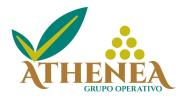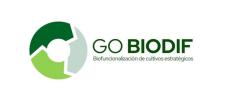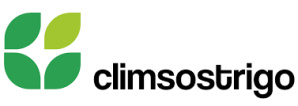
Sunflower Health Operational Group: Application of soil health and quality indicators for sustainable and efficient sunflower management in Aragon, Castile and León, Castile-La Mancha, Extremadura, and Andalusia
- Type Operational group
- Status Filled
- Execution 2022 -2025
- Assigned Budget 533.449,65 €
- Scope Supraautonómico
- Autonomous community Andalucía; Aragón; Castilla y León; Castilla - La Mancha; Extremadura; Madrid, Comunidad de; Murcia, Región de
- Main source of financing CAP 2014-2020
- Project website https://saludgirasol.es
The Sunflower Task Force seeks to make a crop of productive interest profitable, and to move it from being residual and directed solely at marginal areas. It will seek profitability, along with sustainability and ecosystem benefits.
The Group will provide a set of parameters capable of identifying the quality and health of soils that support sunflower cultivation; these indicators will be constructed from physical, chemical, and biological properties and will be defined in a way that makes them simple and quick to measure.
Soil quality and health indicators for sunflower crops will provide useful information for managing soil fertility and crop management, with special emphasis on no-till planting, crop rotation, and conservation agriculture.
This will allow cultivation to shift toward sustainable, smart, climate-adapted agricultural systems and will help farmers comply with the new CAP's eco-schemes. The Task Force will generate a Guide for the Sustainability of Sunflower Cultivation and will carry out aspects related to the dissemination and appropriate transfer of results to the entire sector.
The project seeks to improve the profitability and sustainability of sunflower cultivation through an innovative management model focused on nutrient use efficiency and soil health. Reports will be generated with physicochemical, organic matter, and biological parameters that will help farmers assess soil quality in a simple and reliable manner.
These indicators will be useful for decision-making regarding fertilization and sustainable management of sunflower crops, allowing for monitoring of soil productivity and ecosystem properties. Furthermore, a national database will be created with historical and current information on sunflower cultivation in Spain, including hectares, varieties, uses, and profitability, as well as climate and soil data.
Although it is difficult to include biodiversity parameters in the soil microbiome, their potential use as indicators will be studied. With this information, farmers will be able to achieve more profitable and sustainable sunflower cultivation.
The project seeks to promote an innovative management model that improves the profitability and sustainability of sunflower cultivation, based on efficient nutrient use and soil quality and health. Reports will be prepared with physicochemical, organic matter, and biological parameters, as well as differential indicators that will allow farmers to assess the quality and health of their soil in a simple and reliable manner.
This indicator system will be a useful tool for decision-making regarding fertilization and sustainable management of sunflower crops, allowing for monitoring the evolution of soil productive and ecosystem properties. In addition, detailed information on sunflower crop management will be collected, including crop rotation, direct seeding practices, fertilization systems, and varieties used. This information will be structured into an updated database that will optimize crop management.
Despite the difficulty of incorporating parameters related to soil microbiome biodiversity, their potential use as indicators will be studied. With all this information, farmers and producers will have effective tools and training that will allow them to achieve profitable and sustainable sunflower cultivation.
The project seeks to promote an innovative management model that improves the profitability and sustainability of sunflower cultivation, based on efficient nutrient use and soil quality and health. Reports will be developed with physicochemical, organic matter, and biological parameters, as well as differential indicators that will allow farmers to assess the quality and health of their soil in a simple and reliable manner.
This indicator system will be a useful tool for decision-making regarding fertilization and sustainable management of sunflower crops, allowing for monitoring the evolution of soil productive and ecosystem properties. In addition, detailed information will be collected on the soils that support sunflower cultivation, including physical characteristics, fertility, and management practices such as crop rotation and direct seeding. This information will be structured in an updated database that will allow for optimized crop management.
Despite the difficulty of incorporating parameters related to soil microbiome biodiversity, their potential use as indicators will be studied. With all this information, farmers and producers will have the tools and effective training to achieve profitable and sustainable sunflower crops.
Soil quality and health are dynamic qualities that can change rapidly depending on management practices. To preserve them, implementing sustainable practices is essential. Assessing soil quality allows us to understand and reverse its deterioration, and therefore, the development of a "sunflower cultivation best practices guide" is crucial to guide cultivation toward sustainable, climate-smart, and climate-adapted agricultural systems, helping farmers comply with the eco-schemes of the new Common Agricultural Policy.
The operational group (OG) will coherently structure all existing information on the various soil quality and health indicators tested in agricultural soils, with special emphasis on their effectiveness. These indicators will be correlated with their effectiveness on the crop in general and on sunflowers in particular. Agronomic, ecosystem, and biological parameters will be studied and proposed as indicators of soil health and quality for sunflower cultivation, ensuring that they are robust and easy to determine.
This practical and modern guide will increase nutrient efficiency, make current farms more profitable, and adapt them to new regulations. It will also help jointly assess the quality, sustainability, and yield of sunflowers in the different growing regions in Spain, providing added value to the sunflower agricultural subsector and contributing to the economic and sustainable development of the agricultural sector and rural areas.
The project seeks to promote an innovative management model that improves the profitability and sustainability of sunflower cultivation, based on efficient nutrient use and soil quality and health. Reports will be prepared with physicochemical, organic matter, and biological parameters, as well as differential indicators that will allow farmers to assess the quality and health of their soil in a simple and reliable manner.
This indicator system will be a useful tool for decision-making regarding fertilization and the sustainable management of sunflower crops, allowing for monitoring the evolution of soil productive and ecosystem properties. In addition, detailed information will be collected on existing fertilization tools, evaluating those that best reproduce the behavior of nutrients, especially nitrogen, in Spain's agroclimatic zones. The guide will include various nitrogen sources (minerals, manure, green manure, crop residues) useful for fertilizing sunflowers, both in irrigated and dryland areas, and integrated fertilization strategies in sunflower crop rotations.
Nitrogen loss factors tailored to rainfall and irrigation conditions, organic fertilizer application methods (solid and liquid), and timing will be provided, taking into account information from models such as Manner (United Kingdom) and ALFAM (Denmark), calibrated and validated for Spain. In addition, nitrate loss and N₂O emission factors, crucial to the carbon footprint associated with sunflower oil production, will be included.
Despite the difficulty of incorporating parameters related to soil microbiome biodiversity, their potential use as indicators will be studied. With all this information, farmers and producers will have effective tools and training that will allow them to achieve profitable and sustainable sunflower cultivation.
The project seeks to improve the profitability and sustainability of sunflower cultivation through an innovative management model focused on nutrient use efficiency and soil health. Indicators will be developed to assess soil quality and inform decisions regarding fertilization and sustainable management. In addition, detailed information on soils and management practices will be collected, creating an up-to-date database.
Model plots will be selected to study these indicators and management strategies, comparing innovative and conventional methods. Physicochemical, organic matter, and biological parameters will be evaluated in these plots, correlating soil quality with crop productivity and sustainability. The results obtained will help farmers improve the profitability and sustainability of their farms.
The plots will be monitored for at least two years, and the effects of different management practices on soil health and sunflower oil quality will be analyzed. This information will promote sunflower cultivation and provide better recommendations for increasing production in Spain, contributing to the economic and sustainable development of the agricultural sector and rural areas.
The project seeks to promote an innovative management model that improves the profitability and sustainability of sunflower cultivation, based on efficient nutrient use and soil quality and health. Reports will be developed with physicochemical, organic matter, and biological parameters, as well as differential indicators that will allow farmers to assess the quality and health of their soil in a simple and reliable manner.
This indicator system will be a useful tool for decision-making regarding fertilization and sustainable management of sunflower crops, allowing for monitoring the evolution of soil productive and ecosystem properties. In addition, a "sunflower farmers' guide" will be developed with the soil quality and health parameters and indicators implemented by the Group, enabling farmers to infer a profitable and sustainable crop. The guide will be an easy-to-use, concise document categorized by each of the expected effects: yield, oil quality, nitrogen losses into the environment, and improved soil quality.
Despite the difficulty of incorporating parameters related to the structural and functional biodiversity of the soil microbiome, their behavior and potential use as indicators will be studied. With all this information, farmers and producers will have the tools and effective training to achieve profitable and sustainable sunflower crops.
The project seeks to promote an innovative management model that improves the profitability and sustainability of sunflower cultivation, based on efficient nutrient use and soil quality and health. Reports will be prepared with physicochemical, organic matter, and biological parameters, as well as differential indicators that will allow farmers to assess the quality and health of their soil in a simple and reliable manner.
This indicator system will be a useful tool for decision-making regarding fertilization and sustainable management of sunflower crops, allowing for monitoring the evolution of soil productive and ecosystem properties. Furthermore, the technical solutions provided will be disseminated through a Procedures Manual, which will allow farmers to conduct the same field tests indicated in the demonstration part of the project. Interested farmers will be assisted and advised, ensuring they have effective information and training to achieve profitable and sustainable sunflower cultivation.
Despite the difficulty of incorporating parameters related to the structural and functional biodiversity of the soil microbiome, their behavior and potential use as indicators will be studied. With all this information, farmers and producers will be able to modernize and increase the technological development of sunflower cultivation, applying these parameters to decision-making regarding crop nutrition and the sustainability of the sunflower agroecosystem.
The project seeks to promote an innovative management model that improves the profitability and sustainability of sunflower cultivation, based on efficient nutrient use and soil quality and health. Reports will be developed with physicochemical, organic matter, and biological parameters, as well as differential indicators that will allow farmers to assess the quality and health of their soil in a simple and reliable manner.
This indicator system will be a useful tool for decision-making regarding fertilization and sustainable management of sunflower crops, allowing for monitoring the evolution of soil productive and ecosystem properties. Furthermore, the knowledge and technologies developed will be transferred to the agricultural and agri-food sectors, promoting this technology as a sustainable and profitable management system. The initiative will be disseminated through appropriate media, reaching out to women's associations, young entrepreneurs' associations, and the general public.
Despite the difficulty of incorporating parameters related to the structural and functional biodiversity of the soil microbiome, their behavior and potential use as indicators will be studied. With all this information, farmers and producers will have the tools and effective training to achieve profitable and sustainable sunflower crops.
- Database with the history and current evolution of sunflower cultivation in Spain.
- Report on the types of management that promote greater sunflower productivity and sustainability, as well as on the varieties that offer the best results.
- A report on the most relevant factors for sunflower cultivation that serves as a tool for knowledge transfer.
- A set of reference indicators that allows farmers to evaluate soil quality and health.
- Reference report for knowledge transfer and drafting of the “Practical Guide for Sustainable Sunflower Cultivation.”
- Detailed report on the results and impact on farmers of agricultural activities in the "showcase" plots.
- Active and effective transfer of project objectives and tools.
- Coordinator/entity name: ASAJA
- Coordinator/entity email: alvaro@asaja.com
- Asociación agraria de jóvenes agricultores (ASAJA)
- Fertinagro Biotech S.L.
- Centro de edafología y biología aplicada del Segura y Agencia Estatal Consejo Superior de Investigaciones Científicas (CEBAS-CSIC)
- Universidad Politécnica de Madrid (UPM)







